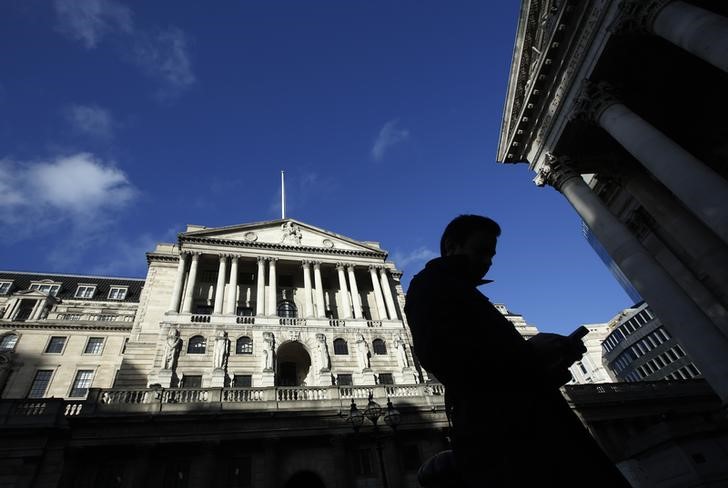By Geoffrey Smith
Investing.com -- The number of coronavirus cases in the U.S. topped 1,000 as the administration began talks with House Democrats on a bipartisan package of economic support measures. Global stocks fell after President Trump failed to deliver the package of measures he flagged on Monday, but bounced after the Bank of England announced a half-point rate cut and other measures. Joe Biden cemented his lead in the Democratic primaries and Saudi Arabia signaled it wants to ramp up oil production even more. Here's what you need to know in financial markets on Wednesday, March 11th.
1. U.S. Coronavirus cases hit 1,000; Treasury seen extending April tax deadline
The number of confirmed coronavirus cases in the U.S. topped 1,000, according to data compiled by Johns Hopkins University. It says there have been 28 deaths and 8 complete recoveries. The U.S. Center for Disease Control and Prevention is still not publishing nationwide data.
Treasury Secretary Steven Mnuchin and House Speaker Nancy Pelosi have begun talks on what would be likely to be a bipartisan plan for stimulus measures. Senate Leader Mitch McConnell signaled that Senate Republicans would likely go along with whatever those two agree.
The Wall Street Journal reported that the Treasury is considering extending the April 15 deadline for filing 2019 taxes, in a move that would amount to a de facto bridging loan from the government to business and households struggling with short-term cash flow issues. It said the full details of the plan hadn’t been finalized.
The number of cases in Italy, meanwhile, passed 10,000, and continued to rise sharply in Germany, France and Spain. By contrast, South Korea followed China in reporting a sharp drop in the number of new cases. South Korea also reported a jump in new cases to 242, reversing a recent trend that had seen them drop from a peak of over 800 to below 200 within a week.
2. Bank of England announces emergency policy package
The Bank of England cut its key rate by 50 basis points to 0.25%, aiming to support an economy that is set to be hurt by fallout of the spreading coronavirus.
After an emergency meeting on Tuesday, the Bank also said it will offer a new term funding scheme with additional incentives for small and medium-sized enterprises, something it said could inject over 100 billion pounds.
In addition, the BoE will waive the existing Countercyclical Capital Buffer of 1%, aiming to avoid a credit squeeze to the real economy.
The moves came on the same day that the government is expected to announce a big increase in public borrowing in its annual budget, albeit largely unrelated to Covid-19 factors.
The pound rose to $1.2946 from $1.2937 immediately before the announcement. The 10-Year U.K. Gilt yield rose to 0.28% from 0.24%, while the FTSE 100 rose 0.4% to 5982 points.
3. Global stocks turn lower after Trump’s no-show, bounce after BoE action
U.S. stock markets are set to open lower, after President Donald Trump failed to present the package of policy measures that he had flagged on Monday, reviving fears that the coronavirus will have a major impact on the U.S. economy. Trump repeated to reporters that the strength of domestic consumption was likely to minimize the virus' impact on the economy.
By 6:20 AM ET (1020 GMT), Dow 30 futures were down 440 points or 1.8%, while the S&P 500 Futures contract was down 2.0% and the Nasdaq 100 was down 1.9%. That was still up clearly from overnight lows.
All three indices had risen nearly 5% on Tuesday in anticipation of the administration’s measures.
Overnight, China’s CSI 300 index had fallen 1.8% and Japan’s Nikkei had fallen 2.3%. However, Europe’s markets rose after the Bank of England's announcement, which strengthened expectations of further action from the European Central Bank on Thursday.
The European Commission had signaled on Tuesday after a call with government leaders that it would temporarily relax state aid policy and push member states to speed up spending of EU budget funds. ECB President Lagarde warned on the same call that Europe faced a 2008-style crisis if governments don’t step in to support the economy.
4. Biden consolidates lead in primaries
Former Vice President Joe Biden won the primaries in Michigan, Idaho, Missouri and Mississippi by a convincing margin, giving him what could be a decisive lead in the race for the Democratic Party’s presidential nomination.
His rival Bernie Sanders took North Dakota and had a slender lead in Washington state with 70% of votes counted. However, he now trails Biden by 160 in the tally of pledged delegates.
The results put pressure on Sanders to concede defeat and bring the campaign to an early close. Sanders didn’t make a public statement after the results.
5. Saudi Arabia prepares to ramp up output even more
Saudi Arabia ratcheted up the oil price war that broke out at the weekend. National oil company Aramco (SE:2222) said it had received instructions to increase its maximum sustainable capacity to 13 million barrels a day, up from 12 million currently. The current ceiling has never been tested in earnest.
The move comes only a day after Aramco said it would sell over 12.3 million b/d in April, up some 2.5 million b/d from what it was producing under the previous output restraint deal between OPEC and Russia.
The company didn’t say how long it would take to reach this new level of capacity.
U.S. crude futures turned lower on the news. By 6:25 AM ET, they were at $33.27 a barrel, down 3.2% on the day. Brent crude was at $36.05 a barrel, down 3.1%.
The U.S. government’s inventory data are due at 10:30 AM ET, while OPEC is due to release its monthly report at some time during the day.
